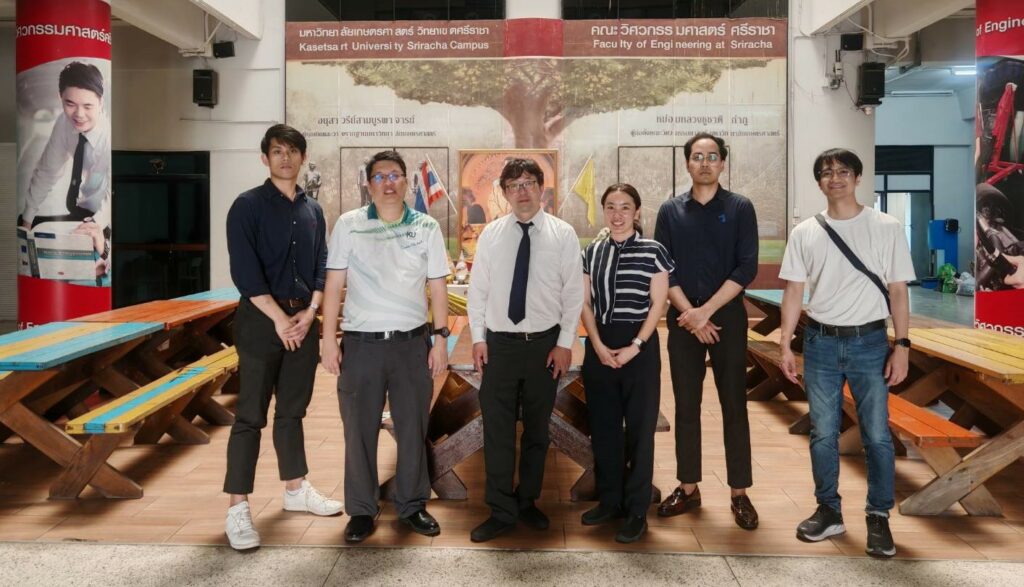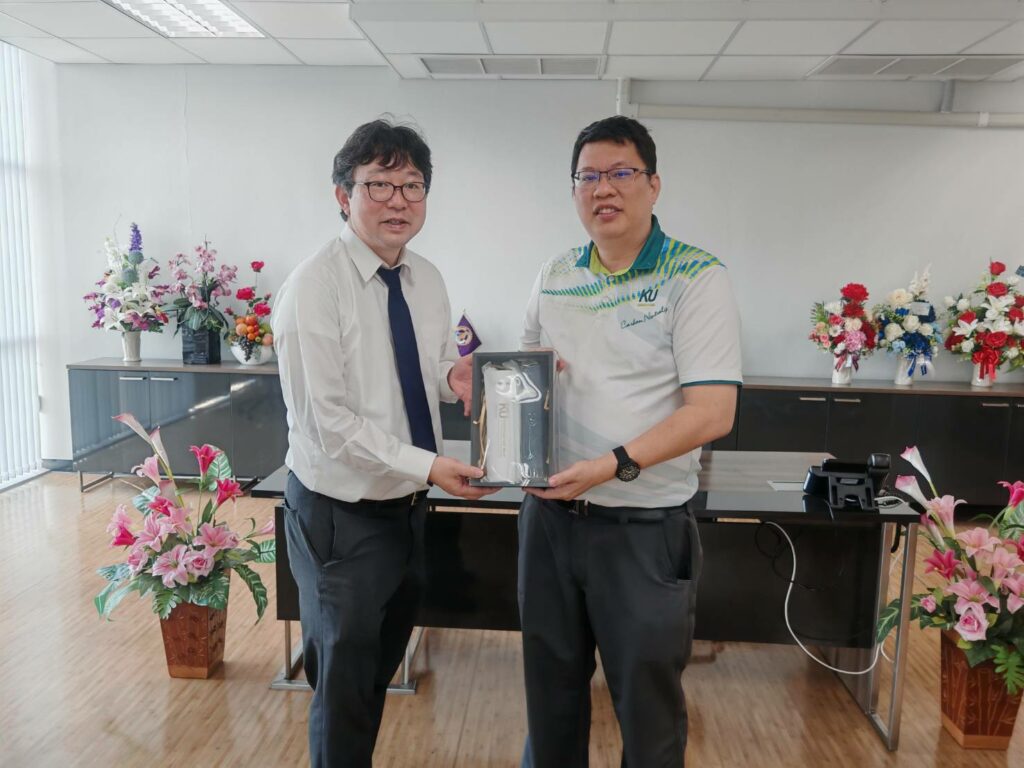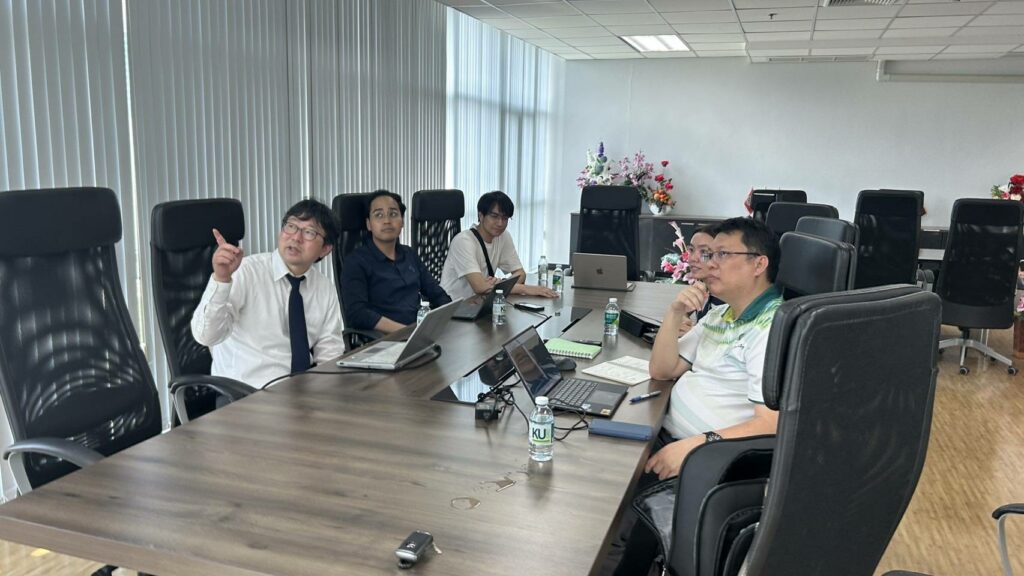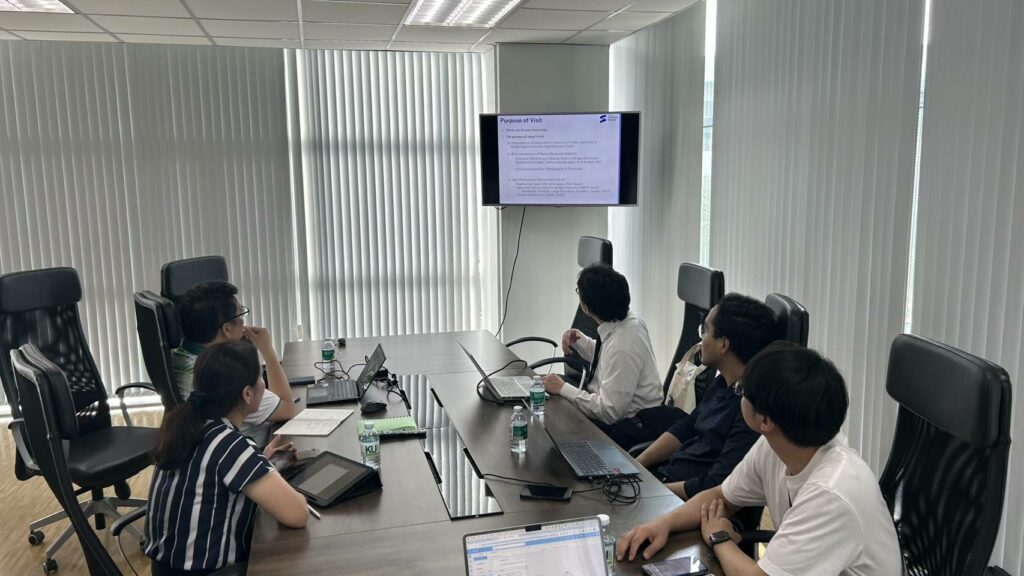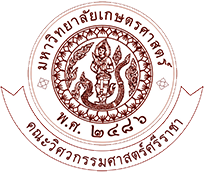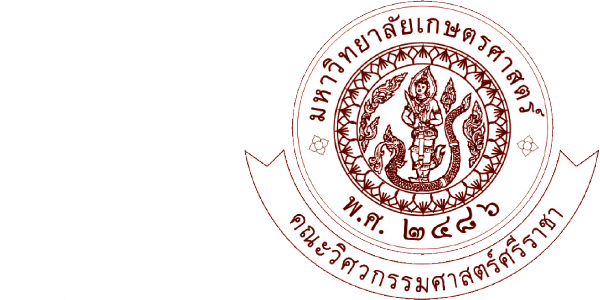KUSFEN x Institute of Science Tokyo
KUSFEN x Institute of Science Tokyo
Faculty of Engineering, Sriracha, welcomes the Institute of SCIENCE TOKYO and collaborates in the field of civil engineering.
On March 15, 2025, Faculty of Engineering, Sriracha, Kasetsart University Sriracha Campus, Chonburi, Thailand, led by Assoc. Prof. Dr. Nattapon Chantarapanich, Dean along with Dr. Porjan Tuttipongsawat Assistant Dean for Engineering Professional Experience and International Affairs welcomed Prof. Dr. Eiichi Sasaki from Sasaki Lab, Department of Civil and Environmental Engineering, School of Environment and Society, Institute of SCIENCE TOKYO to discuss research collaboration in computation, digital twin technology, and AI in structural engineering.
